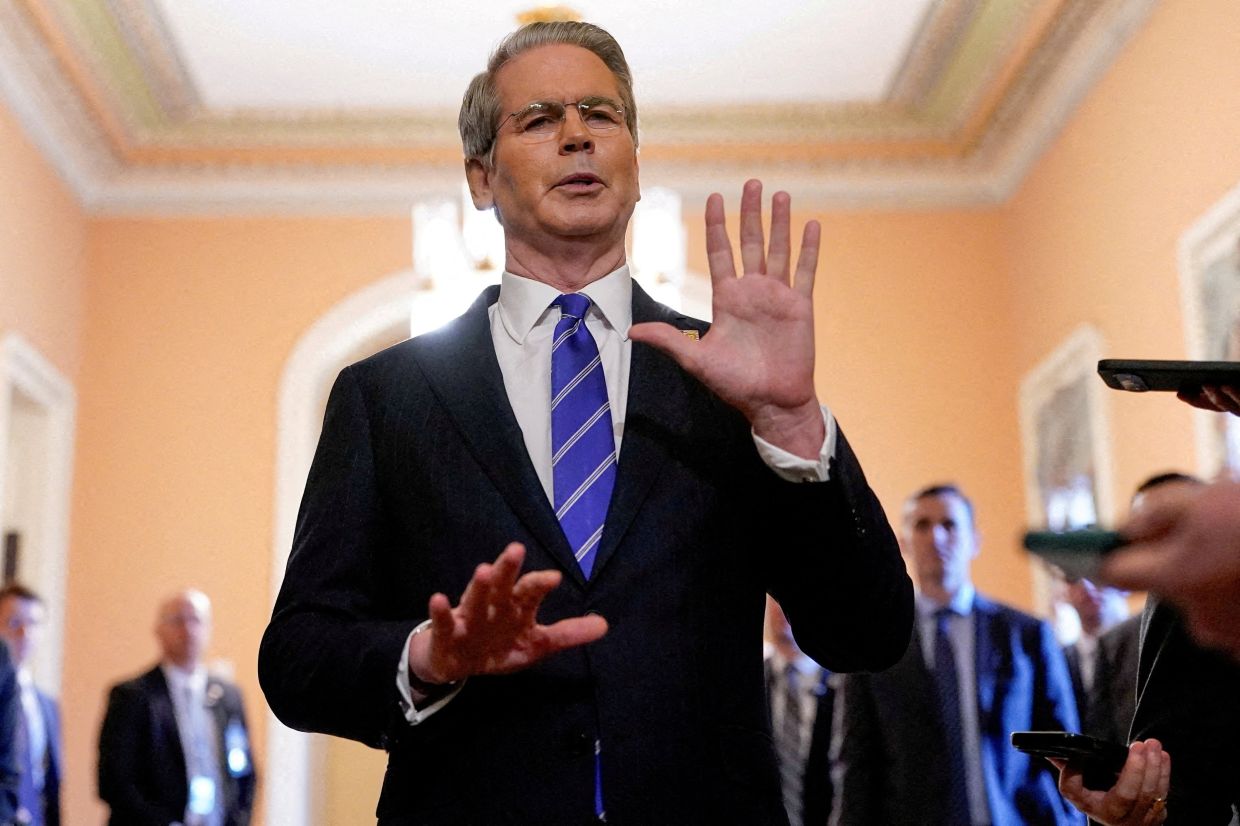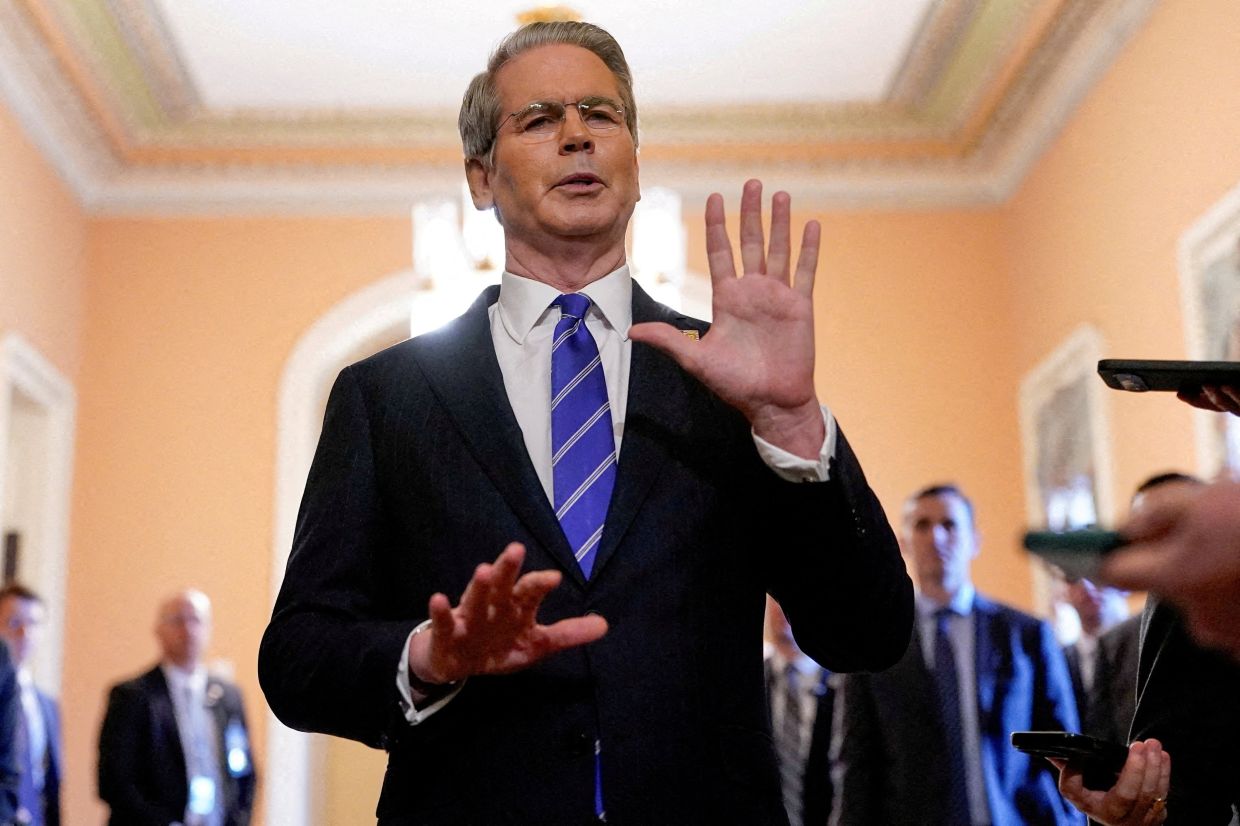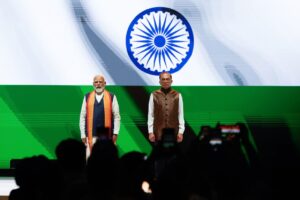
US Treasury Secretary Scott Bessent said on Monday that the Trump administration was in no rush to cut a trade deal with China, but that talks were “in a good place” as both countries engage in discussions ahead of the expiration of a pause in tariffs next month.
In an interview with CNBC, Bessent also said he intended to include in his discussions China‘s purchases of Russian and Iranian oil.
“I think trade is in a good place,” Bessent said, adding that the administration was more concerned with the quality of trade agreements rather than their timing.
“And I think now we can start talking about other things,” he added.
As the trade war hit a fever pitch in April and May, the world’s two largest economies hiked tariffs on each other’s goods to triple-digit levels in a quick-fire, tit-for-tat escalation.
But after talks in Geneva and London led by Bessent and Chinese Vice-Premier He Lifeng, Washington and Beijing temporarily lowered tariff levels until mid-August while discussions continued.
A telephone call between US President Donald Trump and his Chinese counterpart Xi Jinping in early June further stabilised ties. And US State Secretary Marco Rubio and Chinese Foreign Minister Wang Yi also had their first face-to-face meeting this month.
Still, Bessent’s latest comments signal that the focus of talks is shifting from tariffs to geopolitics and Beijing’s ties with Moscow and Tehran.
“The Chinese unfortunately, are very large purchasers of sanctioned Iranian oil, sanctioned Russian oil. So we could start discussing that,” he said.
In a reply to the South China Morning Post, the Chinese embassy in Washington said that China has always been “firmly opposed to illegal, unjustifiable unilateral sanctions” and “so-called long-arm jurisdiction” by the US.
“The international community, including China, has conducted normal cooperation with Iran and Russia within the framework of international law. This is reasonable and lawful without harm done to any third party, and deserves to be respected and protected,” said the embassy.
Noting that “new progress” had been made in resolving each other’s economic and trade concerns, the embassy said that China always honoured its commitments.
“We hope the US will work with China to act on the important common understandings reached by the two presidents and make good use of the consultation mechanism. Hopefully, through communication and dialogue, there will be more consensus and cooperation and less misperception,” it added.
China’s exports to the US declined 24 per cent year-on-year in the second quarter of 2025.
As the main buyer of Russian and Iranian oil and energy products, China has faced heightened criticism from the West, with Beijing accused of using these deals to help Moscow and Tehran cushion the impact from international sanctions.
China’s import of Russian energy has been a lifeline for Russia as it fights sanctions and embargoes as a result of its invasion of Ukraine.
Xin Qiang, an international studies professor at Fudan University in Shanghai, said that Beijing was unlikely to let the US “insert” issues other than tariffs into the talks.
“Beijing will likely insist that trade talks must focus on trade and must not be ‘hijacked’ by other issues,” Xin said.
“Beijing may suggest Washington use other channels to raise its concerns over China’s purchase of oil from Russia and Iran,” he noted, contending that “it is typical for US to use tariff to coerce and attain other geopolitical objectives”.
On Monday Bessent threatened that “any country who buys sanctioned Russian oil is going to be subject to up to 100 per cent secondary tariffs.” He also urged Europe to take similar measures.
Last week, Trump gave Russia a 50-day ultimatum to strike a peace deal with Ukraine or face massive economic sanctions. – SOUTH CHINA MORNING POST






